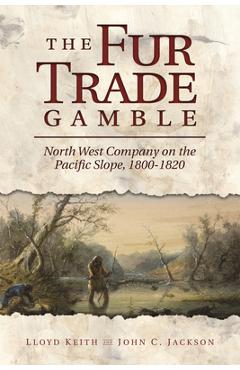
Before Hudsons Bay Company domination, two companies attempted large-scale corporate trapping and vied to command Northwest fur trade.
On one side were the North West Companys Montreal entrepreneurs, and on the other, American John Jacob Astor and his Pacific Fur Company.
They were businessmen first and explorers second, and their era is a story of grand risk in both lives and capital--a global mercantile initiative in which controlling the mouth of the Columbia River and developing the China market were major prizes.
Traversing the world in search of profit, these fur moguls gambled on the price of beaver pelts, purchases of ships and trade goods, international commerce laws, and the effects of war.
In the process, partners and clerks quarreled, surveyed transportation routes, built trading posts, and worked to forge relationships with both French Canadian and Native American trappers.
The loss of valuable natural resources as well as the intermixing of cultures significantly impacted relationships with the regions native peoples.
Ultimately, their expansion attempts were economically unsuccessful.
The Astorians sold their holdings to the North West Company, who later accepted a humiliating 1821 merger.
Drawing from a reservoir of previously unexploited business and personal correspondence, including the letters of clerk Finnan McDonald and a revealing personal memorandum by Fort George partner James Keith, the authors examine Columbia drainage operations and offer a unique business perspective.
Mirvoxid Press
129.18 Lei
William Edward 1872- Gardner
185.62 Lei
Candice W. Jones
94.58 Lei
Lauren Mackler
124.93 Lei
Crecy Publishing
213.89 Lei
Abigail Gartland
66.91 Lei
Peter Marchand
94.58 Lei